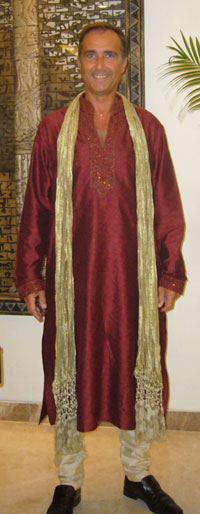It was entirely appropriate that India’s Silicon Valley should be the location of the ICPB’s (India Convention Promotion Bureau) Conventions India Conclave – 2010. August 27 – 28, 2010. Taking place at The LaLit Ashok, Bangalore, India, the convention attracted over 250 delegates representing both international and national buyers as well as ICPB members.
The conclave was inaugurated by Mr. G. Janardhana Reddy, Hon’ble Minister of Tourism and Infrastructure Development, Government of Karnataka.
The conclave was attended by high ranking dignitaries from the Government of India, State Governments and business tourism industry, represented by Mr. G. Janardhana Reddy, Hon’ble Minister of Tourism and Infrastructure Development, Government of Karnataka, Mr. S. V. Ranganath, Chief Secretary to the Government of Karnataka, Mr. Devesh Chaturvedi, Additional Director General (Tourism), Ministry of Tourism, Government of India and Chairman, ICPB, Mr. Viswanatha Reddy, Director, Department of Tourism, Government of Karnataka, Mr. Vipul Mittra, Secretary, Department of Tourism, Government of Gujarat, along with the Office Bearers of ICPB, Mr. Rajeev Kohli, Vice Chairman, ICPB, Mr. Shyam Nagpal, Hony. Secretary, ICPB, and Mr. Chander Mansharamani, Hony. Treasurer, ICPB.
It was a great honour for Mr. Shyam Nagpal, India’s first Alumni of IAPCO, to introduce, Mr. Philippe Fournier, President, IAPCO, at the conclave. Mr. Shyam Nagpal, also informed the audience that IAPCO is the most pioneering and prominent association in the world of PCOs, with 100 members in over 35 countries.
This inaugural session was followed by a seminal and conceptual Keynote Presentation, of Mr. Philippe Fournier, President, IAPCO, on “Conferences in the Knowledge Economy: Face to Face Meetings are changing and empowering our World”.
Philippe Fournier, began the presentation with a strategic statement. “We are a global world, which means global meetings! Meetings have been a solution over the centuries and today’s globalisation can only enhance the need to meet, not, as a perceived advantage of social communication, detract. When people meet, things happen, things change, things improve, and economy rises. Face to face meetings power the economy.
We are now in a knowledge-based economy. Without learning from experience, without face-to-face interaction, without networking in real time with our peers, individuals, institutions, disciplines, we lose the ability to increase that essential knowledge. Without knowledge, our financial economy cannot improve.
“But do not be mistaken. Social Communication is an essential asset to the new type of meetings that are developing today. On-line activities can feed the meeting before, during and after the event, fuelling the ever-increasing knowledge economy. The new meeting formats are live, they are virtual, they are hybrid! Hybrid events are a mix of devices, applications, digital media and websites. Utilising SMS, social media, pod/webcasts, micro blogs, YouTube, smart phones – and today is just the beginning. It is high tech. And the knowledge economy uses high-tech as a weapon, a tool that helps to develop meetings by maximising face to face interactions.”
